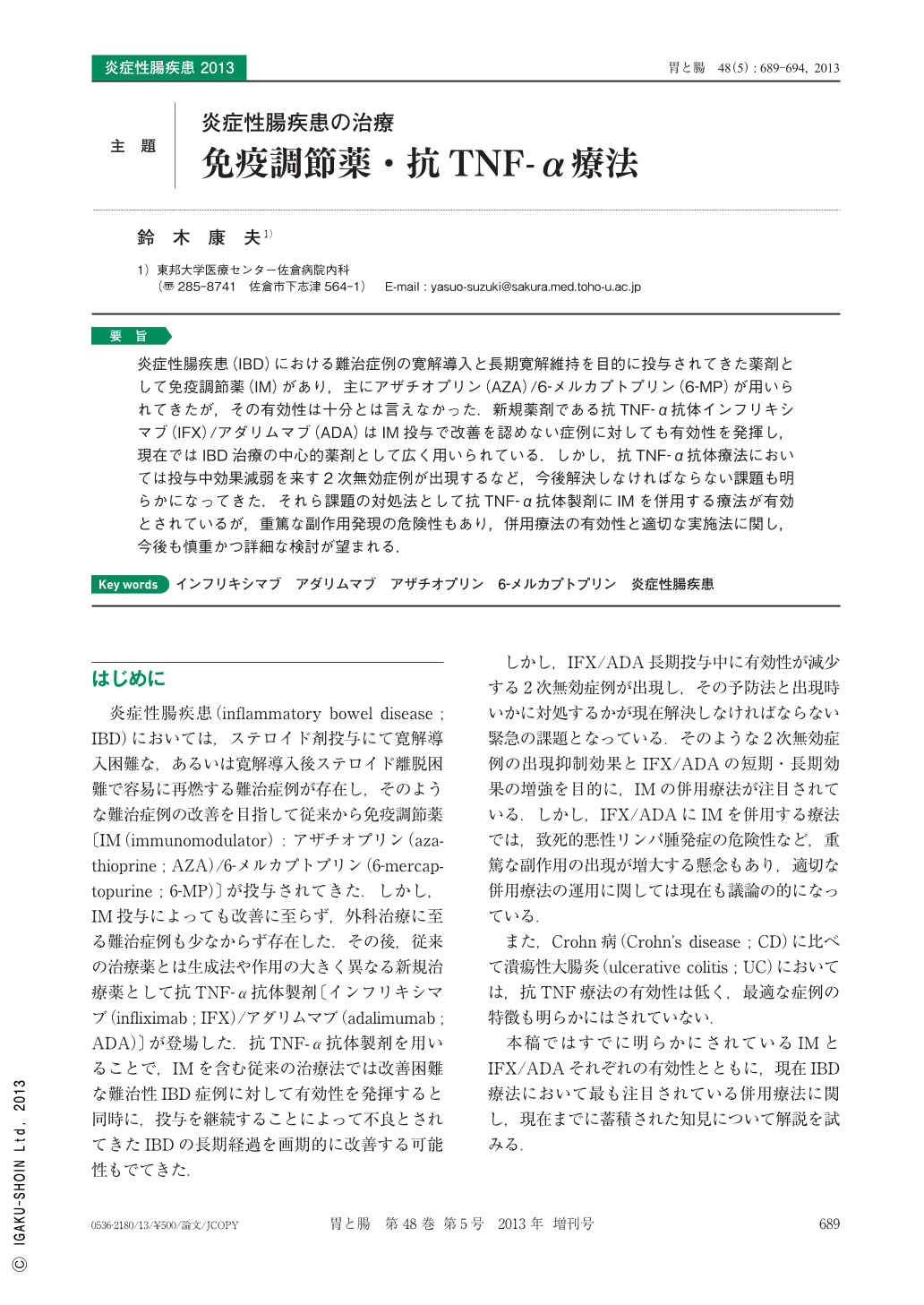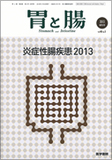Japanese
English
- 有料閲覧
- Abstract 文献概要
- 1ページ目 Look Inside
- 参考文献 Reference
炎症性腸疾患(IBD)における難治症例の寛解導入と長期寛解維持を目的に投与されてきた薬剤として免疫調節薬(IM)があり,主にアザチオプリン(AZA)/6-メルカプトプリン(6-MP)が用いられてきたが,その有効性は十分とは言えなかった.新規薬剤である抗TNF-α抗体インフリキシマブ(IFX)/アダリムマブ(ADA)はIM投与で改善を認めない症例に対しても有効性を発揮し,現在ではIBD治療の中心的薬剤として広く用いられている.しかし,抗TNF-α抗体療法においては投与中効果減弱を来す2次無効症例が出現するなど,今後解決しなければならない課題も明らかになってきた.それら課題の対処法として抗TNF-α抗体製剤にIMを併用する療法が有効とされているが,重篤な副作用発現の危険性もあり,併用療法の有効性と適切な実施法に関し,今後も慎重かつ詳細な検討が望まれる.
IM(immunomodulator), mainly AZA(azathioprine)/ 6-MP(6-mercaptpurine), has been used as induction therapy and maintenance therapy for patients with refractory IBD(inflammatory bowel disease), but they have not been sufficiently effective. New drug anti TNF-α antibodies, IFX(infliximab)/ADA(adalimumab), have been widely used for disabled patients without any improvement when treated with IM. However, it has been shown that some problems must be solved in the near future including those of patients who loose responses of IFX/ADA(LOR)during their treatment. Combination therapy of IFX/ADA and IM is now thought to be effective for LOR, but we need to be concerned about the risk of serious adverse events caused by combination therapy and how to use combination therapy effectively.

Copyright © 2013, Igaku-Shoin Ltd. All rights reserved.


